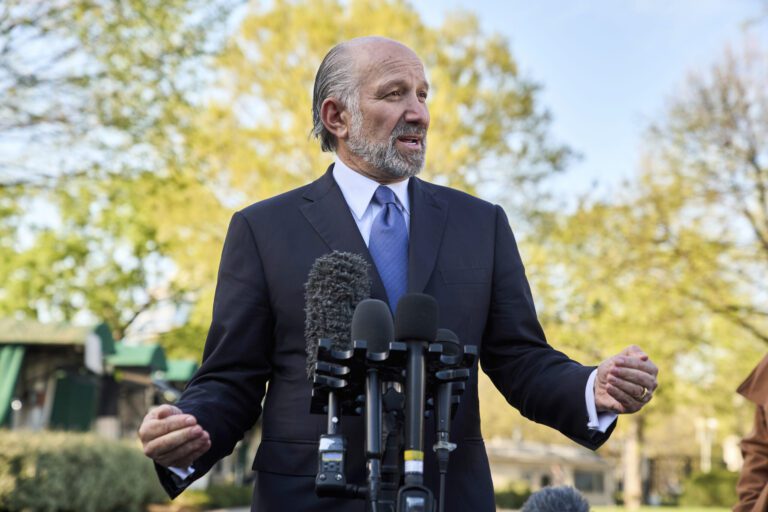Trump Administration’s Tariff Update: Temporary Exemptions and Future Plans
In a recent announcement, Secretary of Commerce Howard Lutnick revealed that the tariff exemptions on electronics, such as smartphones and laptops, are merely temporary. This move is part of a broader strategy as the Trump administration seeks to establish a more targeted tariff approach for the semiconductor industry.
Temporary Tariff Exemptions
Lutnick emphasized during his appearance on ABC’s "This Week" that these exemptions are not permanent. He stated:
“This is not like a permanent sort of exemption. [Mr. Trump] is just clarifying that these are not available to be negotiated away by countries. These are things that are national security — that need to be made in America.”
Key Points:
- Electronics are temporarily exempt from reciprocal tariffs.
- They will eventually fall under the upcoming semiconductor tariffs anticipated within the next few months.
President Trump’s Mixed Messages
Promptly following the exemptions announcement, President Trump opted to clarify his stance via social media. He claimed that:
“There was no Tariff ‘exception’ announced on Friday. These products are subject to the existing 20% Fentanyl Tariffs, and they are just moving to a different Tariff ‘bucket.’”
He further indicated that the government is examining the entire electronics supply chain as part of national security tariff investigations.
Impact on the Tech Sector
The exemption was initially perceived as beneficial for major tech companies like Apple and Samsung and semiconductor firms such as Nvidia. This led to a surge in futures of American tech stocks. However, the announcement of tariff uncertainty on Sunday dampened that optimism.
Effects on Tech Stocks:
- Big tech companies enjoyed a brief uptick in stock prices.
- Smaller American businesses relying on imports from China faced ongoing supply chain challenges.
Industry Reactions:
- Fox Business reporter Charles Gasparino criticized Lutnick’s remarks, suggesting they could create further confusion in the market.
- Billionaire Ray Dalio expressed concerns regarding the disruptive nature of the mixed messages from the White House, emphasizing the need for clarity to aid economic stability.
Future Tariff Policies
The Trump administration has experienced several adjustments in its tariff policies recently, indicating that more changes loom on the horizon, especially related to semiconductor tariffs.
Upcoming Policies:
- Further details on tariff exemptions are expected next week.
- Continued evaluations on the impact of tariffs on the electronics supply chain.
Lutnick’s Sunday comments have reignited uncertainty regarding American trade policy, prompting analysts to describe the current situation as "dizzying" for industry stakeholders.
Broader Economic Implications
The latest tariff changes come as the Trump administration grapples with a complex international trade landscape, especially concerning China. Lutnick indicated that despite attempts to incentivize American manufacturing, actual shifts are unlikely in the immediate future:
“It has been the other way around. Other countries, in particular China, were making a lot of money.”
Key Challenges:
- The actual relocation of tech manufacturing back to the U.S. remains a complicated undertaking, involving significant investment and time.
- Companies like Apple have built substantial supply chains in China, making a swift transition to U.S. manufacturing highly impractical.
Conclusion
As the Trump administration prepares for anticipated semiconductor tariffs, the atmosphere remains charged with uncertainty for both large tech companies and smaller American businesses. With evolving policies on tariffs, stakeholders must stay informed and adaptable in the face of fluctuating trade dynamics.
For regular updates on tariff policies and their implications on the tech sector, consider checking reputable sources like The Wall Street Journal and Bloomberg.


